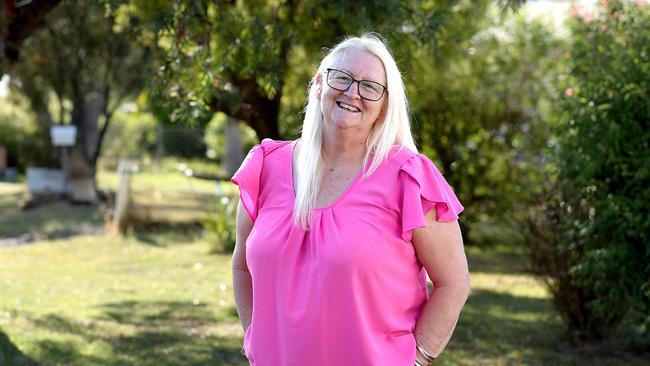Vaccine cuts risk of new melanomas
A personalised vaccine trialled on humans has slashed the risk of secondary cancers after melanoma treatment, in what has been hailed as a significant medical breakthrough.

A personalised vaccine trialled on humans has slashed the risk of secondary cancers after melanoma treatment, in what has been hailed as a significant medical breakthrough.
The cancer vaccine developed by the biotech Moderna was found in a phase 2 human trial to reduce the recurrence of melanoma by 50 per cent in initial human trials when administered alongside an immunotherapy drug.
The finding marks the first time a cancer vaccine has been proved to be effective and have raised hopes that personalised mRNA vaccines may be available to cancer patients within the next five years. Participants in the trial were given the cancer vaccine combined with Merck’s drug Keytruda.
“Our trial demonstrated the combination of a cancer vaccine plus Keytruda demonstrated superiority over Keytruda alone, in terms of relapse, survival and death. There was a 44 per cent reduction in the risk of relapse of people’s cancer or death for those who received the cancer vaccine in combination with Keytruda,” Moderna Therapeutics president Stephen Hoge said.
“This is the first randomised control trial that has ever shown a statistically significant benefit from cancer vaccination. It is also the first randomised controlled trial to show that benefit for a personalised vaccine.”
The groundbreaking vaccines are formulated to be specific to each patient’s cancer and are developed based on the individual’s tumour biopsies, which are then genetically sequenced. Scientists identify that person’s cancer cells’ specific mutations and create an mRNA vaccine that primes the immune system’s t-cells to target the mutated cells.
The cancer vaccine is designed to prevent cancer recurrence in those who have already been diagnosed with stage 3 or 4 melanoma and treated. In these patients, cancer recurrence is common and frequently fatal.
Oncologist Georgina Long AO, Melanoma Institute of Australia co-medical director and University of Sydney professor, said the trial findings were highly significant, but needed to be confirmed in a larger phase 3 study. She was also an investigator on the Moderna-Merck trial.
“This may actually represent the second penicillin moment in cancer immune therapy,” Professor Long said. “So it was first checkpoint inhibitors, and now these mRNA personalised vaccines. I think this is a huge, exciting finding and portends a really exciting future for mRNA technology. I think it will be a gamechanger for a whole heap of medical diseases.”
The phase 2 study involved 157 participants. There were five Australian sites and 79 of the patients in the trial were Australian. “We need to confirm these results,” Professor Long said. “It’s 157 patients and that’s not enough to be confirmed, but it is absolutely exciting to see these early results.”
Sydney mother Pam Morey was a participant in the trial. She was diagnosed with stage 4 melanoma in 2019.
Ms Morey had a malignant melanoma removed from her face 15 years ago, but developed secondary lumps and was recruited to Moderna’s clinical trial in 2019. The treatment stretched over about nine months and she has been cancer-free since.
“My one wish was to always live to 100. I think this will allow me to do that,” Ms Morey, 65, says. “It’s just allowed me to live more freely without always having that worry of the cancer coming back.”
Moderna plans to share the trial’s results at medical meetings and publish the findings in a peer-reviewed journal. It will likely launch a phase 3 clinical trial of the vaccine – known as mRNA-4157/V940 – in the near future, but hasn’t ruled out applying to regulators for approval of the therapy based on the phase 2 results.




To join the conversation, please log in. Don't have an account? Register
Join the conversation, you are commenting as Logout